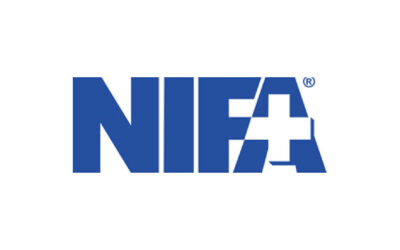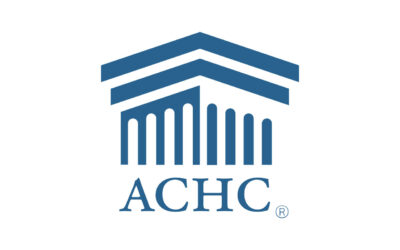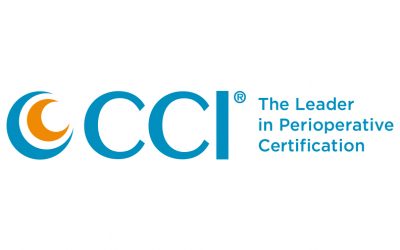
By By James X. Stobinski, Ph.D., RN, CNOR, CNAMB, CSSM(E)
Accreditation standards shape the work of credentialing organizations such as the Competency and Credentialing Institute (CCI). The Institute for Credentialing Excellence (2010) states that quality certification programs should have certificants, “ … engage in specified activities designed to measure or enhance continued competence.” This challenges nursing certification organizations secondary to assumptions which undergird nursing practice which I refer to as the “Four Assumptions of Nursing Competency.”
The first assumption regarding nursing competency is that addressing the issue is just too complex and exceeds the resources and expertise of licensing and regulatory entities, such as the state boards of nursing. To enhance competency, some certification organizations and licensure boards use continuing education or other learning activities in their programs using the hypothesis that increasing knowledge will enhance competency. The evidence which supports this assumption is not strong and conclusive and many state boards of nursing have no continuing education requirements.
Secondly, there is a long-held assumption that competency is somehow sustained if a nurse maintains licensure. As Tilley states in her 2008 article, “Currently, in most states, a nurse is determined to be competent when initially licensed, continuing competency is assumed thereafter unless otherwise demonstrated.” This assumption is tenuous at face value in that the licensure examination makes no attempt to measure specialty nursing practice of nurses further into their professional career. Any number of events may impact nursing competency after licensure occurs to include the ageing process and physical ailments.
A third assumption is that somehow the education and clinical experience that occurs in the workplace will maintain competency. I spoke to that fact in 2008 in stating “This clinical learning takes place almost exclusively in the nursing work environment.” (Stobinski, 2008, p. 422). While nurses learn and acquire skill in the nursing work environment there is no guarantee that this learning is of sufficient quality to enhance or maintain competency.
A final assumption is that a periodic skills check-off process such as an annual skills fair ensures clinically relevant competency. Donna Wright, a well-known author on competency assessment casts doubts on such notions in a 2019 article in the AORN Journal. Wright states that, “The perioperative environment has so many technical skills and equipment that turn over constantly – if leaders have a competency for every technology, they are not going to make it.”
Fundamental to this issue is that the definitions of competence and competency are not standardized. A very useful, recent definition of competency from Fukada (2018) is, “A cluster of elements, including knowledge, skills, attitudes, thinking ability and values that are required in certain contexts.” Fukada takes a holistic approach in that definition and established that competency is complex and multifaceted. This complexity is part of the issue for credentialing bodies as they attempt to establish competency assessment programs.
CCI is working diligently to integrate competency assessment methods into its programs. The PPCS-R instrument for the self-assessment of perioperative nursing competency instrument in the new CFPN credential facilitates self-assessments over the span of a career with linked, meaningful professional development activities. CCI likewise believes that the documentation of competency can be improved with innovations such as digital badges which are also used with CFPN. CCI will continue to address the complex issue of nursing competency in its credentialing programs in part because its accreditation standards require this work. As an organization, CCI also believes that this provides value to the certified nurses and serves the patients and their families well. CCI will debut new resources in 2022 to include perioperative specific preceptor programs, new digital badges and additions to recertification processes.
References
- Fukada, M. (2018). Nursing Competency: Definition, Structure and Development. Yonaga Acta Medica. 61(1): 1–7. doi: 10.33160/yam.2018.03.001
- Institute for Credentialing Excellence. (2010). Defining Features of Quality Certification and Assessment Based Certificate Programs. Accessed September 14, 2021 at: https://www.credentialingexcellence.org/Portals/0/Docs/Accreditation/Features%20Document.pdf
- Stobinski, J. X. (2008) Perioperative nursing competency. AORN Journal (88)3. pp. 417-436.
- Tilley DS. (2008) Competency in nursing: a concept analysis. J Contin Educ Nurs. 2008;39(2):58-64.
- Wright, D. (2019). Shift Your Competency Mindset. Accessed September 5th, 2021 at: https://www.aorn.org/about-aorn/aorn-newsroom/periop-today-newsletter/2019/2019- articles/mindset
James X. Stobinski, PhD, RN, CNOR, CSSM(E), is chief executive officer at Competency & Credentialing Institute (CCI).









